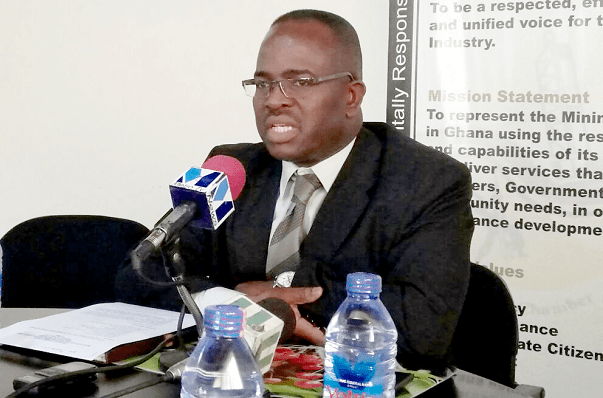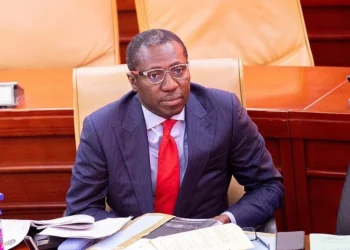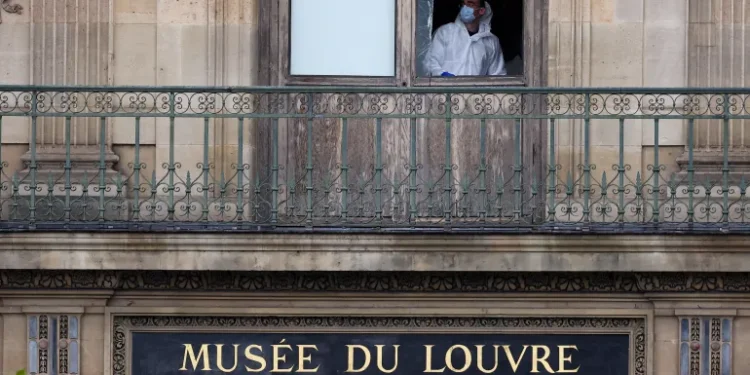The Chief Executive Officer (CEO) of the Ghana Chamber of Mines Mr. Sulemanu Koney, three years ago, long before galamsey (illegal mining) reached its current critical levels, together with his team foresaw the impending challenges.
To address the issue proactively, they embarked on a mission to offer thought leadership and solutions for managing mining activities, particularly the small-scale mining sector, which was at the heart of the issue. This report highlighted Mr. Koney’s perspective on the galamsey problem, the actions taken by the Chamber of Mines, and his recommendations for improving small-scale mining in Ghana. According to Mr. Koney, the galamsey problem was anticipated long before it became the national crisis it is today.
“We realized that this was a problem, and we didn’t just sit aloof. One of the goals of the Chamber is to provide thought leadership for finding solutions to problems in the mining industry nationwide. So, we decided that this was going to be a problem.”
Mr. Sulemanu Koney Chief Executive Officer (CEO) of the Ghana Chamber of Mines
This forward-thinking approach underscored the Chamber’s commitment to sustainable mining practices and its willingness to engage in finding long-term solutions.
Illegal Mining on Concessions
Mr. Koney emphasized that illegal mining activities, or galamsey, did not originate in isolation. This crucial point is often overlooked by those analyzing the galamsey issue. He pointed out; “… The problem emanated on the concession of mining companies. People forget about this. Years back, we struggled to get them off our concessions.”
This statement highlighted the complexity of the galamsey issue and the difficulties faced by the legal mining industry in managing illegal operations on their land. According to Mr. Koney, they provided key recommendations that focused on ensuring that land earmarked for small-scale mining was properly evaluated before being parceled out for mining activities.
“So, one of the things we did was to conduct a study. We’ve got to commission a study. This was about 15 years ago, and one of the key recommendations has to do with making sure that we have a view of the extent of mineralization of parcels of land before we parcel them for small-scale mining.”
Mr. Sulemanu Koney Chief Executive Officer (CEO) of the Ghana Chamber of Mines
This recommendation is critical because it ensures that land use is optimized and that the environmental and economic impact of mining activities is properly considered before small-scale miners are given access to land.
The Importance of Exploration
A key aspect of the Chamber’s approach, according to Koney, is the focus on exploration. Exploration is a crucial part of the mining process, providing vital information about the extent and value of mineral resources on a given parcel of land. Without proper exploration, mining activities can be mismanaged, leading to environmental degradation and unproductive operations.
“Speaking about exploration, for us is what needs to be done. That mining is good, but you look, the laws of this land, the constitution, the Minerals and Mining Act 703 requires that you get a license before you mine.”
Mr. Sulemanu Koney Chief Executive Officer (CEO) of the Ghana Chamber of Mines
He emphasized that the proper exploration and licensing processes should be respected in all forms of mining, whether large-scale or small-scale.
Moreover, the Chamber supports it and is working to ensure that small-scale miners have the resources and training they need to operate safely and sustainably.
“We are all for small-scale mining, supporting small-scale mining, but we should make small-scale mining attractive. Support them, help them the best way we can as a country.”
Mr. Sulemanu Koney Chief Executive Officer (CEO) of the Ghana Chamber of Mines
The Chamber has offered several solutions, including partnering with institutions.
“I have offered a few solutions. Working with the University of Mines and Technology, making sure that the products coming out—mine engineers, those who are in the health and safety space, those in the environment—are given the requisite training adapted for small-scale mining.”
Mr. Sulemanu Koney Chief Executive Officer (CEO) of the Ghana Chamber of Mines
Enhancing Regulation and Accountability
Another critical solution offered by the Chamber of Mines is improving regulation and accountability in the small-scale mining sector. This would ensure that small-scale miners operate within legal and environmental guidelines.
He emphasized; “The Minerals Commission, working with them, training them, certifying them, and making sure that we know where these small-scale miners are, as we do for large-scale miners.” Mr. Koney also pointed out that the lack of reliable data on small-scale miners is a major obstacle to effective regulation. He noted; “… As we speak, you wouldn’t believe it, but the reality is that we don’t even have numbers for small-scale miners.”
This lack of data makes it difficult to track the impact of small-scale mining and to hold operators accountable for their activities. Mr. Koney’s insights into the galamsey crisis and small-scale mining offer a balanced and forward-thinking approach to addressing one of Ghana’s most pressing environmental and economic challenges. By focusing on exploration, supporting small-scale miners, and enhancing regulation, the Chamber of Mines is working to ensure that mining can contribute to Ghana’s development sustainably and responsibly. As Mr. Koney noted, the solutions are available, but they require coordinated efforts between government institutions, industry leaders, and small-scale miners themselves.
READ ALSO; The Rise of Side Chick Culture in Ghana: A Closer Look at Divorce, Relationships























